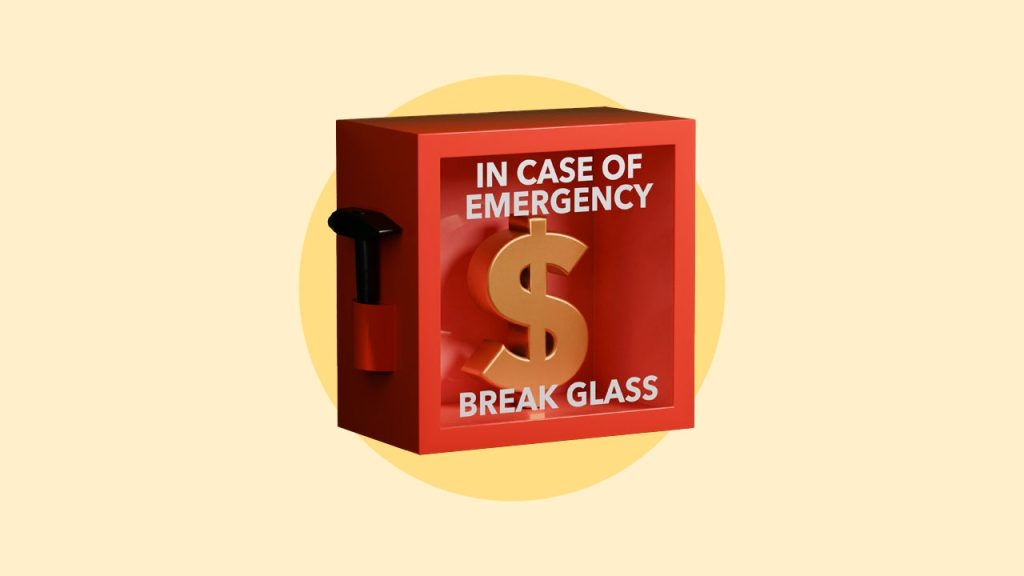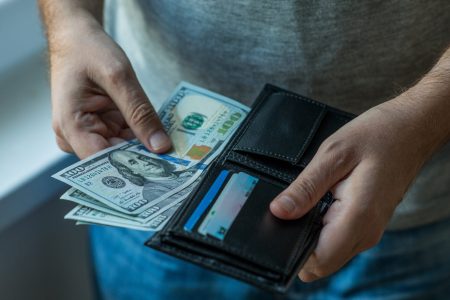Key takeaways
- You can get funds within one business day with some types of emergency loans.
- Payday loans or car title loans may be your only emergency loan choice if you can’t qualify based on your credit.
- Even if you’re in a hurry, make sure you compare each lender and loan option to make sure you’re getting the best rate and terms for your credit situation.
Getting an emergency loan can be as easy as filling out an online application, providing details about your paycheck and adding bank information.
Emergency personal loans can give you quick cash to pay for the unexpected. They are a type of personal loan that borrowers can use for emergencies, such as medical bills or urgent home repairs. They tend to be small and are funded within days.
Knowing how to get different types of emergency loans and comparing emergency loan rates may help you find the right one in a bind.
How to get an emergency loan
The need for immediate funds can make it difficult to make an informed loan decision. You may be dealing with doctors in a hospital emergency or insurance companies after a car accident.
Regardless of the circumstances, there are five steps you can take to help you choose the right emergency loan for you.
1. Decide whether you need an emergency loan
Consider your timeline for needing the funds. Some situations require fast emergency cash. But if you have at least a few days before you need money, you have time to shop around. Comparing rates is the best way to find the best loan for your needs.
Emergency savings statistics
If you need money urgently but don’t have the cash to cover it, you’re not alone. The 2025 Bankrate Emergency Savings report found that nearly a quarter of U.S. adults (24 percent) have no emergency savings at all. Meanwhile, only 46 percent of adults have enough emergency savings to cover three months of expenses.
2. Compare loan types and lenders
Always compare rates and terms offered by at least three different companies. The right emergency lender depends on your financial situation and how quickly you need the money.
Several types of emergency loans are available. Each emergency loan has its pros and cons, and some may better fit your situation and finances than others.
If you need money within a day or two to fund your emergency, personal loans, payday loans, credit card cash advances and title loans offer the fastest cash. Of those options, personal loans have the lowest costs and fewest drawbacks.
Bankrate tip
Watch out for predatory lending features like prepayment penalties, upfront fees or high interest rates. Fees on payday loans may translate to annual percentage rates (APRs) above 400 percent. If you feel pressured to accept a lender’s offer or don’t understand the loan terms, find another lender.
3. Get prequalified
Most emergency lenders offer loan prequalification based on some basic information you provide. Prequalification lets you preview rates without a hard credit inquiry. The key to getting the best loan for you will depend on several factors, including:
- Credit scores: Lenders use your credit score as a measure of risk for personal loans, home equity products and credit cards. If your credit score is below 670, you may need to shop for fair credit loans or products offered by bad credit lenders.
- Repayment terms: Choose the shortest repayment term you can comfortably afford so a one-time emergency doesn’t turn into a long-term debt payment that costs you a fortune in interest.
- Interest rates: When shopping for an emergency loan, pay close attention to APR. It includes both interest and fees. You can use the APR to calculate your payment and your total interest cost.
Bankrate tip
Pick an emergency loan payment that fits into your budget. Consider a longer term if you’re already living paycheck to paycheck. You can usually pay the balance down faster if you have the extra funds available in the future.
4. Fill out the application
Once you pick the best emergency loan lender, you must complete an application and provide any personal loan application documents like pay stubs, proof of address and your driver’s license. The lender may use these to verify your identity, income and debt-to-income ratio (DTI). Provide documents as quickly as possible to get your cash in the shortest amount of time.
5. Wait for a decision and funding
How long it takes to get a loan depends on the type of financing you use. Personal loans are some of the fastest loans, with funding taking one to seven business days. Some lenders may even deposit funds the same day you’re approved. Compare at least three lenders before selecting one, if you have time.
The time it takes to receive funding is one reason personal loans are better than home equity loans or HELOCs in an emergency — the approval process for these is much longer and takes additional paperwork. Because the amount you can borrow is based on the equity in your home, you usually need to have the home appraised. From application to funding, these loans can take up to 45 days, making them a poor choice if you need money fast.
For many types of financing, including emergency loans, funding is usually directly deposited into your bank account with automatic payments set up for future payments.
Where to get a fast emergency loan
A number of financial institutions offer fast emergency loans. The right one for you may vary depending on when, where, and how your emergency situation occurs.
Banks
Your local bank may offer you an emergency loan at more competitive rates and better terms if you have a longstanding relationship. And since you already have an account, funding may be quicker.
The main benefit of borrowing from a bank is knowing who you’re borrowing from in a face-to-face setting. They may offer financial advice so you don’t need to borrow money for emergencies in the future.
What to look out for
If you have bad credit, banks may not be willing to lend you money. They tend to set more stringent credit requirements.
Credit unions
Like banks, credit unions typically offer you fair terms and interest rates on the money you borrow. They may also offer fast turnaround times for HELOCs and home equity loans.
Credit unions may be a better option than banks for those with less-than-perfect credit. They tend to have more lenient credit and income requirements.
What to look out for
Although you may not need to be a member when you apply, you must join the credit union before you can receive loan funds. In many cases, this is as simple as opening a savings account or living in the field of service.
Online lenders
Securing an emergency personal loan online is relatively simple and requires you to fill out some personal information from the comfort of your home. Taking out your loan online will also allow you to compare different personal loan options all at once, and they may be available during hours when most banks are closed.
Online lenders offer speedy funding, and you could get up to seven years to pay the loan off. You could also get a competitive interest rate if you have a solid credit score, but a lower score isn’t necessarily a deal-breaker. For these reasons, if you are in a precarious financial situation and need money as soon as possible, an online lender is your best bet.
What to look out for
Personal loan scammers may pose as online lenders. Always confirm that a lender is legitimate and registered in your state. Make sure the lender’s website is secure, too.
Options to avoid
While the following loans may provide quick funding — sometimes within one day — you should only consider these as a last resort. Many come with exorbitant rates or put your collateral at risk. You could end up in a seemingly endless debt loop and negatively affect your credit. Consider help from a loved one, hardship programs or a paycheck advance from your employer before opting for one of these options.
Credit card cash advances
While not as risky as a payday loan, credit card advances should only be used as a last resort and are too expensive to rely on. They function as a short-term cash loan that is borrowed against your credit card’s limit and typically come with high fees and interest.
Plus, when you use a cash advance, your credit limit will drop, raising your utilization ratio. This can negatively impact your credit score.
Payday lenders
You can find payday lenders online or in local strip malls in most areas, though they’re outlawed in some states. The applications usually only require proof of employment and how often you’re paid.
These loans come with APRs in the triple digits and high fees that are difficult to understand. Plus, payment is typically required in 14 days, which can further strain your finances. These risky loans should only be considered if you don’t qualify for a bad credit personal loan and can’t borrow funds from friends or family.
Car title lenders
Like payday loans, car title loans don’t require a credit check. You can get the funds quickly with basic information about your vehicle. However, these loans tend to have extremely high interest rates and fees and short repayment terms. If you can’t repay the loan as agreed, the lender will repossess your vehicle.
Bottom line
Getting an emergency loan can provide financial relief in times of crisis. Carefully consider your options and compare lenders to ensure you get the best rates and terms. Only borrow what you need and have a repayment plan in place.
By taking these steps, you can be prepared for any unexpected costs and avoid falling into a cycle of debt. If you aren’t currently in crisis, work to build an emergency fund so you don’t need to borrow when life happens.
Why we ask for feedback
Your feedback helps us improve our content and services. It takes less than a minute to
complete.
Your responses are anonymous and will only be used for improving our website.
Help us improve our content
Read the full article here












